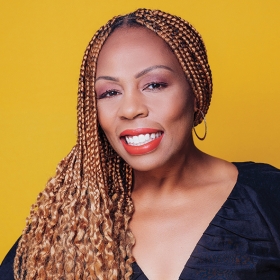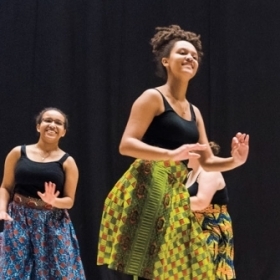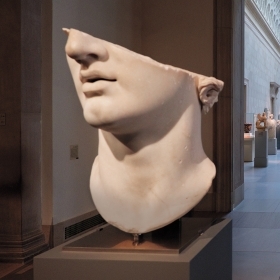Charlotte Ashamu ’01
Charlotte Ashamu ’01 began her career working in global economic development before moving into the cultural heritage realm. She is now the director of international programs at the Institute for the Preservation of Cultural Heritage at Yale University. Her big push in this new role has been to launch the Yale Directors Forum, a global fellowship that provides training for leaders at African cultural heritage institutions.

In both her life and career, Charlotte Ashamu ’01 straddles continents and disciplines.
The daughter of an African American mother and a Nigerian father, she was born in the United States but grew up in Lagos, Nigeria.
“My mom was an art teacher and exposed me at an early age to museums and cultural spaces, and my father was an entrepreneur who worked across Africa and inspired an interest in political economy,” she says from South Africa, where she had just completed a work trip.
It’s perhaps not surprising that Charlotte began her career working in global economic development, including for the private sector branch of the World Bank, before moving into the cultural heritage realm. She is now the director of international programs at the Institute for the Preservation of Cultural Heritage at Yale University.
Her big push in this new role has been to launch the Yale Directors Forum, a global fellowship that provides training for leaders at African cultural heritage institutions, whether they are involved in preserving art or historical documents, or less tangible materials such as music, food, and Indigenous traditions.
“This is an exciting time across Africa where new arts and cultural institutions are developing in many different countries from Togo to Zimbabwe to Angola,” she says.
This past spring, the forum hosted its first symposium in Johannesburg, bringing together fellows from 11 countries across the continent, including Wanjiru Koinange, a bestselling Kenyan author whose nonprofit preserves historic libraries.
Charlotte comes from “a family of firsts.” Her grandparents were the first Black tenured professors at the University of Virginia, and she attended Wellesley at the insistence of the college-educated women in her family, who felt a women’s college would provide the best support for a female leader. Today she serves on the Ambassadors Council of Wellesley’s Albright Institute and helped host its first networking event in Cape Town over the summer.
“I see my work as part of a long continuum of people who are breaking down barriers and changing the way institutions are,” Charlotte says.

